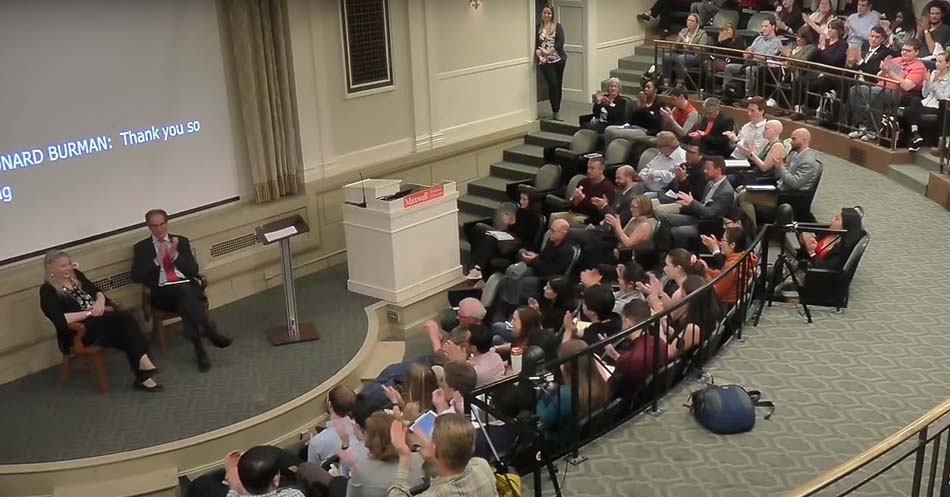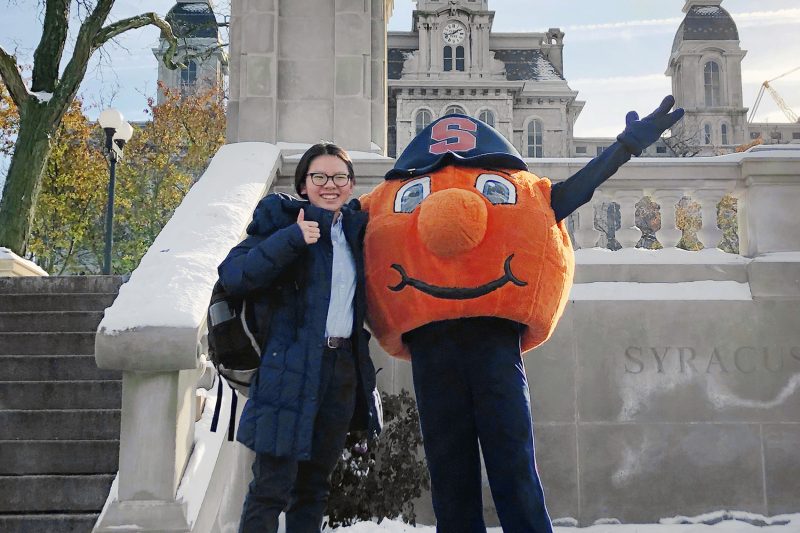
Prospective Student Visits
Prospective undergraduate first-year and transfer students who have not yet applied to Syracuse University have a range of options for in-person and virtual visits, sample classes, admission interviews and more.
In addition to virtual events, prospective graduate students should contact the admission team for your program to schedule an in-person visit or to attend a class.
Can’t get to campus?
Our virtual tour is the next best thing. Immerse yourself in a 360-degree view of campus as you take a tour led by Syracuse University alumni. Or, register to attend a virtual admission event.

Connect with an Alumni Ambassador
Learn about the Maxwell School from the people who know it best! Alumni Ambassadors are passionate champions of the Maxwell School who are using their Maxwell education to make real and lasting change in the world. Alumni from every degree program working in a range of organizations and industries are available to answer your questions. Connect with one today.
Public Events at Maxwell
Attend a public event, in person or virtually, and get a taste of what Maxwell School has to offer. With hundreds events each year—including prominent public speakers, lectures, workshops, foreign language conversation tables, research presentations and more—there are so many ways to engage in the intellectual and social life on campus.
Popular Sovereignty and the Bengali Language Movement in East Pakistan
Virtual
Add to: Outlook, ICal, Google Calendar
The Moynihan Institute, along with the South Asia Center is proud to host Ahona Panda, assistant professor of history from Claremont McKenna College.
In the wake of 1948's unrest and
protests over the Partition, ‘the language question’ surfaced as the main issue
discussed in the East Bengal Legislative Assembly in Dhaka, East Pakistan. A
large cross-section of East Pakistanis, aggrieved over Jinnah’s decision to
impose Urdu as the state language, started to fiercely advocate for Bengali
and, until 1956, questioned the meaning of a state language.
Panda's talk explores the
complexities of the Bengali language movement as a political event. By
examining the microhistories of a few dissenters, she argues that the discourse
of language was situated between two distinct political imaginaries: the
nationalism of Bengali (jātī) and the formulation of the Pakistani nation-state
(rāṣṭra).
Category
Social Science and Public Policy
Type
Virtual
Region
Virtual
Open to
Public
Organizer
MAX-Moynihan Institute of Global Affairs
Accessibility
Contact Matthew H. Baxter, PhD to request accommodations